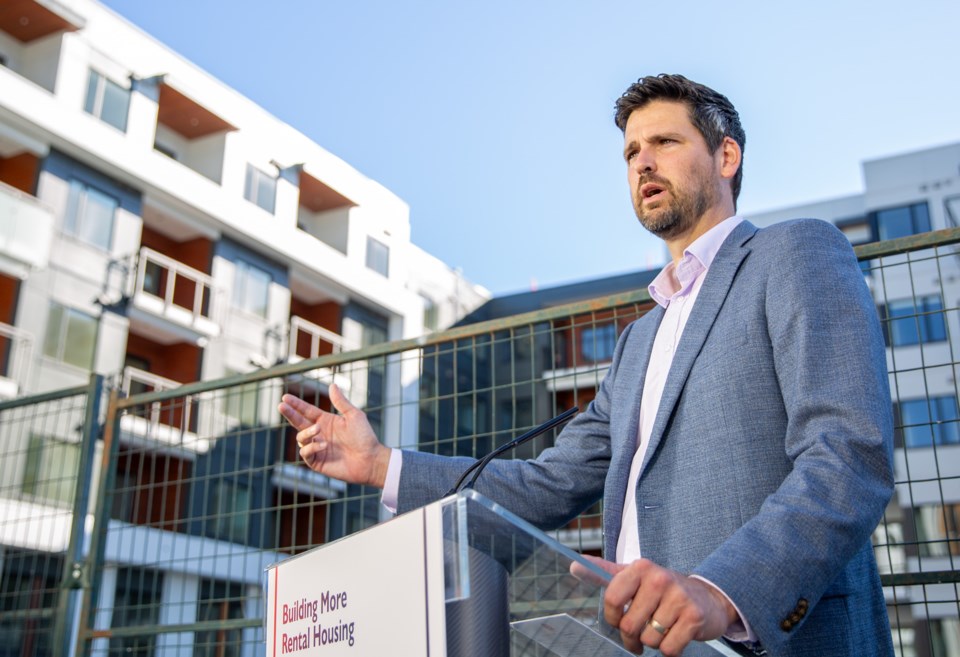Government policy, at the federal, provincial and municipal level – not private sector intelligence –now defines the future for residential investing in Canada.
The government policy that has dictated the direction of the housing market for the past year and into 2024 is the Bank of Canada (BoC) interest rate setting.
In the past 18 months, the BoC overnight lending rate has gone from 0.25 per cent to 5 per cent. This has flattened home sales across the country, slowed construction of new homes and skewed plans and forecasts of developers and buyers alike.
While the federal government has increased immigration levels to a target of 500,000 newcomers per year, it has also slapped a two-year ban on foreign homebuyers, which has led to frustration for immigrants and upended marketing and construction plans for new urban condominiums and resort developments.
And more federal changes are coming.
Housing Minister Sean Fraser says the federal government will reveal new housing measures in the fall budget update and in the coming months that aim to ramp up homebuilding across the country.
Fraser also weighed in on measures the federal government could pursue to address the strain short-term rentals are putting on housing affordability during a Vancouver press conference. He added there will be more policies geared toward increasing the stock of social housing.
In British Columbia, a ban on short-term rentals outside of a private residence and provincewide up-zoning for single-family detached lots has gutted the investment plans for many owners and change the direction of land assemblies in nearly every community in the province.
The latest initiative was announced November 8, with B.C. legislation that will make it mandatory for municipalities to approve dense multi-story housing, such as condo towers, around Skytrain stations, bus exchanges and other transit hubs.
In Metro Vancouver, the change means condo towers of up to 20 storeys are automatically approved directly beside Skytrain stations. Municipalities can’t reject them — though, if they want, they can approve even higher towers than the provincial maximum.
But one of B.C.’s largest reforms is still to come. The province has set aside billions of dollars for a new BC Builds program in the spring of 2024. The province will use public land and new fast-tracked approvals, to construct affordable housing only available to British Columbia residents.
Private sector rental developers will, apparently, be left to compete.
At the municipal level in B.C. and other provinces, increases in development cost charges are adding to the cost of complexity of building new homes. In November, the Metro Vancouver Regional District’s board of directors approved a tripling to development cost charges associated with new building developments.
The new fees will go into effect in 2025 and will add big costs to residential projects. Depending on the location it will add $18,506 to $24,106 per single-family lot, $16,952 to $22,182 per townhouse unit, and $11,360 to $14,657 per apartment unit.
Therefore, it is a what governments are doing and planning that is the most important aspect of forecasting the direction of the housing market.



